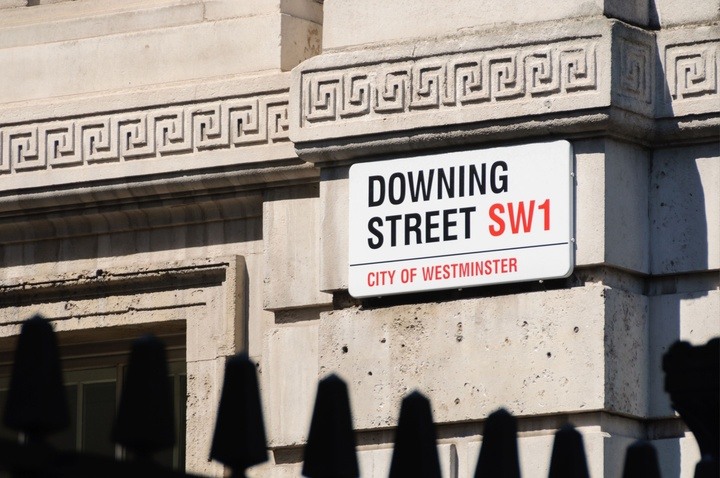Weekly Briefing: speculation around tax cuts & ISA changes ahead of the Spring Budget & a strong start to the year for the UK economy
This week, we look at new business activity data which points towards a positive start to the year for the UK economy, speculation surrounding possible Inheritance Tax (IHT) and income tax cuts to come in the Spring Budget, and more.
UK Economy
Strong Start To 2024 For UK Economy Despite Recession
- The UK economy started 2024 off strong despite falling into a shallow recession at the end of last year, new figures suggest.
- Business activity bounced back at the beginning of the year, with S&P’s Purchasing Managers’ Index (PMI) – which measures private sector activity – climbing to a nine-month high of 53.3.
- A figure of 50 or above indicates growth, whilst anything below the 50 mark signifies contraction.
- This was the second consecutive month that the PMI exceeded expectations, with a reading of 52.2 in January.
- February’s PMI follows stronger-than-expected retail sales in January as sales volumes jumped 3.4% after a steep fall in December.
- Meanwhile in Germany, a deepening downturn in the manufacturing sector saw business activity contract at its fastest rate since October, dropping to 46.1.
Spring Budget 2024
Chancellor Considers Lifetime ISA Changes
- According to Politico, the Chancellor is strongly considering reducing the 25% Lifetime ISA (LISA) penalty to 20% in his Spring Budget, and increasing the maximum property purchase value to £500,000 to reflect house price growth is also on the table.
- Under the current rules, if you’re aged between 18 and 39, you can open a LISA, save up to £4,000 each tax year and receive a 25% bonus of up to £1,000 from the Government. This can go towards a deposit on a house, as long as the property costs £450,000 or less, or alternatively towards retirement.
- But this £450,000 limit has been frozen since the LISA’s introduction in 2017, whilst house prices have risen by 29% in that time.
- In a January episode of The Martin Lewis Money Show Live, Lewis challenged the Chancellor over the Lifetime ISA’s £450,000 limit.
- Campaigners, including Lewis, have called for the £450,000 limit to be raised or the 25% withdrawal penalty – which LISA holders must pay when using their LISA savings to purchase a non-qualifying property, such as one priced above £450,000 – to be decreased or scrapped altogether.
- In the episode, Hunt responded to a viewer’s comments that he’d been priced out of using his LISA without penalty due to rising house prices, saying: “Well, look, I've now started to make my plans for the Budget, which is on 6th March, and I absolutely hear what you say on that. And, you know, consider the Chancellor properly lobbied on that point.”
What Are The Chances Of Tax Cuts In The Spring Budget?
- With Chancellor Jeremy Hunt’s Spring Budget just around the corner, there has been much speculation around what’s to come, particularly regarding potential tax cuts.
- MoneyWeek reported that the Chancellor has stated there’s less flexibility for tax cuts in the Spring Budget than there was in his Autumn Statement.
- However, the latest public sector finances data shows the Government had a record £16.7 billion surplus in January, the largest since records began in 1992, with MoneyWeek suggesting this could leave some room for tax cuts.
- Cautioning that the surplus figure is still behind the Office for Budget Responsibility’s £18.2 billion forecast, Susannah Streeter, Head of Money and Markets at Hargreaves Lansdown, said: “It offers a few inches of headroom for Hunt, but not enough for a Budget of dramatic tax cuts.”
- One suggestion is that the Chancellor may reform IHT by cutting the rate from 40%, increasing the IHT-free threshold, or even the abolition of the tax altogether.
- Cuts to income tax have also been suggested, after Prime Minister Rishi Sunak promised to reduce the basic rate of income tax during his 2022 leadership campaign.
- Nonetheless, with the expectation that significant cuts to taxation are unlikely, it’s important that investors consider tax incentives – such as the Enterprise Investment Scheme (EIS) and Seed Enterprise Investment Scheme (SEIS) – to help make their money go further.
A Final Note
Speculation surrounding upcoming tax cuts and ISA changes is clearly heating up ahead of the Spring Budget next week.
We’ll be eagerly awaiting the Chancellor’s Budget on 6th March to see if much-anticipated IHT reforms come to fruition and what is in store for the ISA market – make sure to keep one eye on your inbox.
At GCV, we remain committed to providing the latest insights into the investment and wider economic landscape in order to support investors in making well-informed decisions when choosing where to allocate their capital.
If you would like to find out more about a number of tax-efficient investment strategies available to UK investors, discover our range of downloadable resources here.
%20(3)%20(2).jpg)








